 |
|
|
| , | ||||
|
Note that even though the old R1b1b2a1 nomenclature is used for the haplogroup result, the certificate also specifies SNPs M269, P310 and P311, but notes negative results for SNPs P312 and U106. R1b1b2a1 (L23+ L51+ L11+): this is the basic West Atlantic Modal Haplotype (WAMH). It is the most common haplogroup in Western and Central Europe up to 80% among Irish, Welsh, Scottish and Basque peoples, but also appears up to 76% in Normandy. Those people who are predicted L11+ need a deep clade test to see their proper subgroup, as grouping is impossible based on marker values. R-M269, or R1b1a1a2 (reclassified as of 2017), is now the most common Y-DNA lineage in European males. It is carried by an estimated 110 million males in Europe 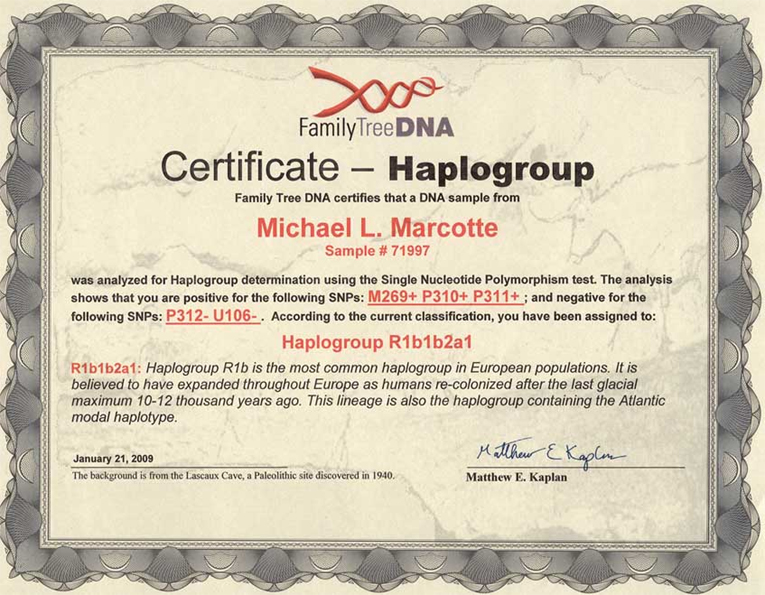 In 2018, I took advantage of a sale price for an upgrade of my 2009 test, was further refined and subdivided and my haplogroup was renamed R-P311. By 2018, FtDNA was using the newer haplogroup nomenclatures, and while the SNP results did not change, my haplogroup is now called R-P310, by the Family Tree DNA (FtDNA) testing company. As best I can tell, R-P310 is a deeper haplogroup of R-P311, when SNPs U106 and P312 are negative. 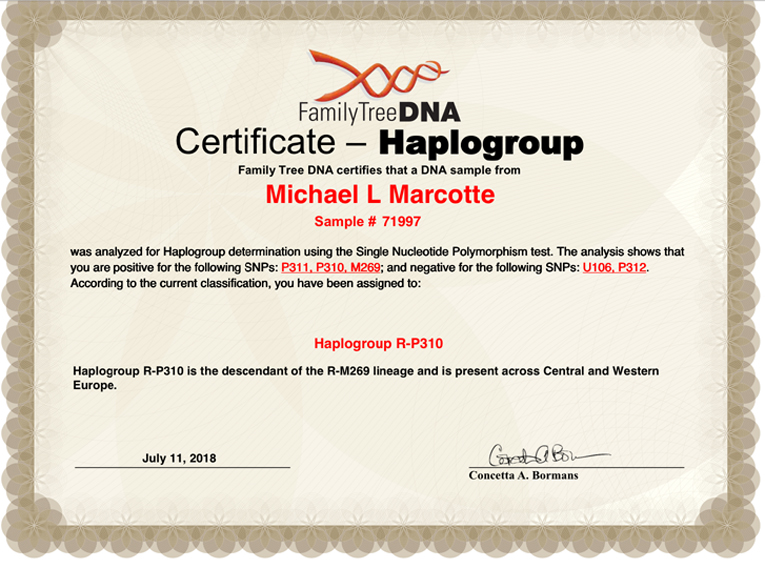 The 2018 test results also provided the certificate below, showing the specific 25 marker/allele results. 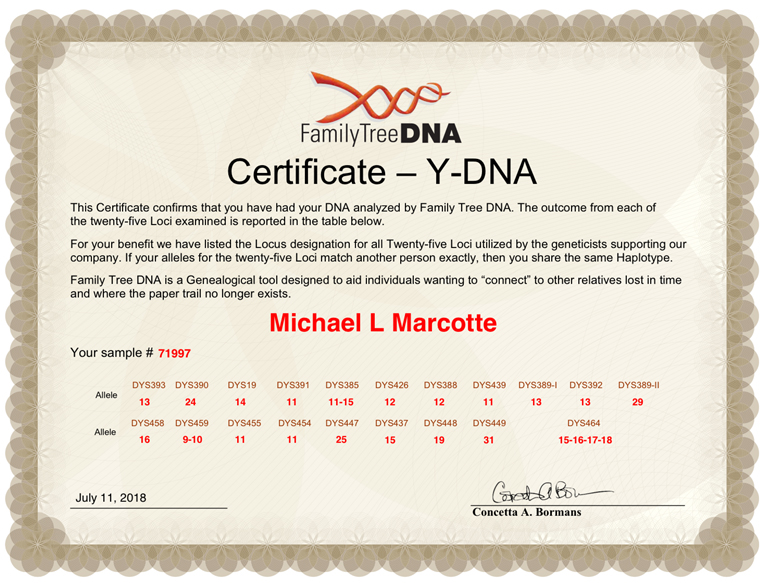 Also in 2018, I decided to cross-check my Y-DNA results with a second popular DNA testing company, 23andMe, who provided a different haplogroup R-P311 for what appears to be the same-confirmed Y-DNA results. 23andMe did not provide the allele results. I have asked for clarification, but thus far, it just appears that R-P310 is the non-U106, non-P312 subclade of R-P311. 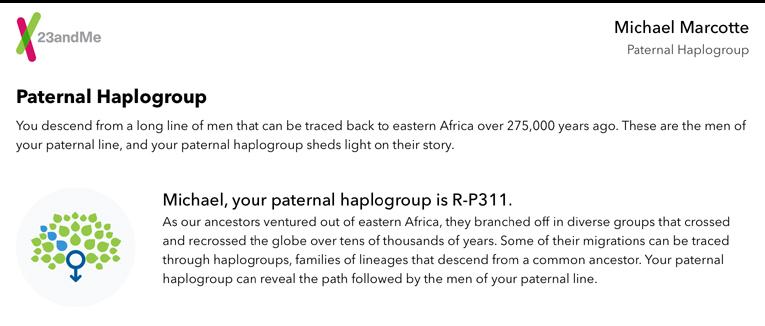 Then, at the beginning of August 1018, I received this further/deeper explanation and classification from 23andMe, which I have edited for display. 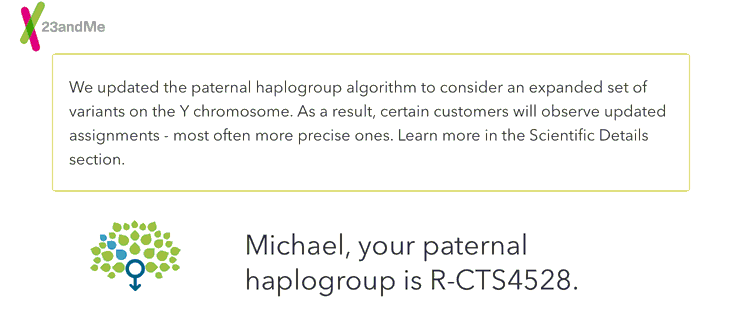 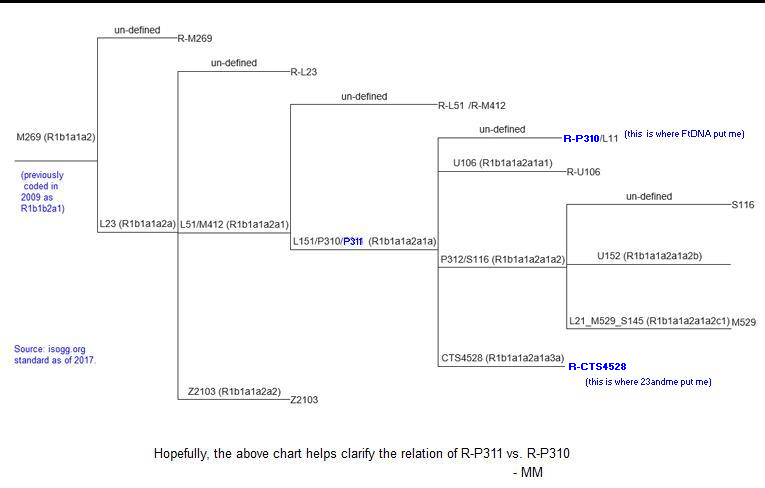 Back to Michael Marcotte's HomePage |
